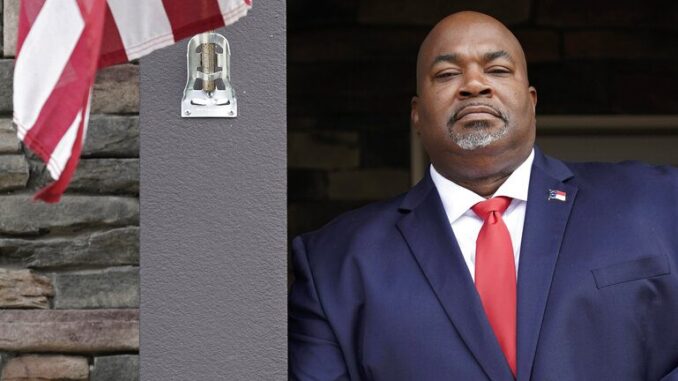
North Carolina deserves the best system of higher education in the country.
That’s why I applaud lawmakers for their recent override of Gov. Roy Cooper’s veto in enacting a groundbreaking law that reforms our taxpayer-funded public institutions, including our colleges and universities. This legislation is an important step toward rooting out radical politics from our public institutions. In our government, and in higher education, this will reorient our systems to focus on educating and preparing our students for the future.
One of this bill’s most important reforms is tackling the radical ideology of so-called “Diversity, Equity, and Inclusion”.
As the first Black lieutenant governor of North Carolina, I wholeheartedly stand for equal treatment and equal opportunity across our State and Country. I can confidently say, the problem with DEI programs and policies are that they do not stand for these same principles.
Despite its name, DEI has come to represent unequal treatment based on race, and exclusion – especially toward conservatives. That philosophy has no place on campus, or in any public institution. Yet, many North Carolina schools have more-or-less fully bought into these extreme positions.
The state’s new law stops public institutions, including colleges and universities, from hiring based on their adherence to DEI. This is common sense: professors should be hired because they’re experts, not because they toe the party line. The law also prevents institutions from forcing professors and staff from going through “implicit bias training,” which says white people are oppressors and black and brown people are victims. That’s racist and insulting. And it’s news to me, as a Black man who holds the second-highest elected office in the state. People aren’t defined by their skin color.
What should our lawmakers and elected leaders do next? The answer is simple: keep moving forward with reforms that better focus our higher education system on preparing students to succeed in the workforce.
To build on the progress we’ve made, North Carolina can continue to lead in higher education reform by enacting legislation that will: better protect freedom of speech and assembly around campus; improve admissions standards to better serve students of all backgrounds and walks of life; further promote academic freedom and the free exchange of ideas; and increase transparency in curricula and coursework.
We need laws that better protect freedom of speech and assembly on campus — even if liberal administrators, professors, and activists don’t agree. We need to ensure that students paying for an education aren’t being force-fed extreme and divisive ideas like DEI or Critical Race Theory, instead of preparing for the workforce. And in institutions where whole departments exist to propagate these concepts, like agencies and bureaus dedicated solely to DEI — we need to abolish them outright.
The healthcare nonprofit Do No Harm has shown how the DEI department at the University of North Carolina School of Medicine spreads radical ideas that detract from training medical professionals. The sooner these departments are closed, the better.
To better prepare students for their careers, we need to abolish licensure requirements that involve DEI buzzwords — these are a backdoor attempt to put radical politics back front and center, and our students deserve better.
In light of the recent U.S. Supreme Court ruling that rightly put an end to so-called “affirmative action”, North Carolina should be enacting laws that make it harder for bureaucrats to find ways to skirt the law of the land within the admissions process.
Higher education institutions should be transparent about curricula and coursework by publishing this information publicly. Measures like this will help students and families better understand the requirements for a degree, and how a given program of study can help prepare them for a career in today’s dynamic workforce.
North Carolina lawmakers have taken an important step forward in reforming our government and our higher education system by passing this legislation and overriding Democrat Gov. Roy Cooper’s veto. Now we need to keep building on this progress by passing more bold reforms that keep North Carolina’s colleges and universities the envy of the nation and the world.
Mark Robinson is the 35th Lieutenant Governor of North Carolina.
